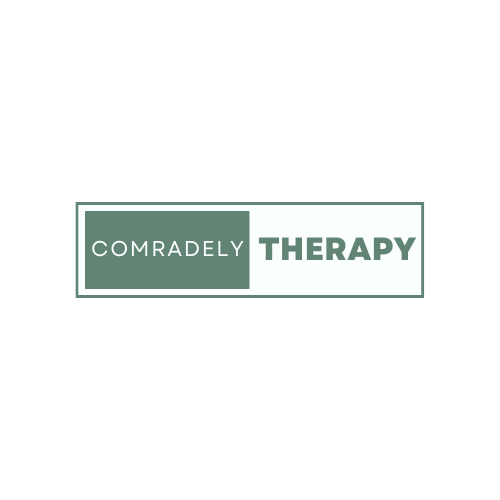Why Am I So Emotional?
8 minute read.
Why Am I So Emotional Right Now?
In our culture, we ask ourselves this question a lot. We view emotions as a problem that needs to be solved. We punish ourselves and others for being “too much,“ for crying, and for having big feelings.
When we address our emotions like they are a problem, we ignore their root causes. The question “Why am I so emotional right now?“ ignores outside influence, systematic oppression and day to day stressors. It asks, “What am I doing wrong?” instead of “What is causing this pain?”.
The question is inherently harmful and will always result in self-blame, which makes our already painful emotional state even harder to sit with.
Why Do I Get So Emotional?
Because emotions are a natural part of human existence, questioning their presence is like questioning nature itself. Judging yourself for experiencing emotions is like asking why it’s cold in Boston in January or why you’re feeling tired after a sleepless night. Emotions are natural, normal and expected.
However, this tendency to judge ourselves is not our fault. We live in a culture that does not tolerate emotional expression, as it takes away from our productivity and consumption.
Because we are groomed from an early age to feel less and keep to ourselves, there can be shame and guilt attached to being emotional.
Self-compassion.
The kindest thing you can offer yourself when you’re in a highly emotional state is self-compassion. This may sound like “I am feeling overwhelmed, it’s causing me pain“ or “I am really feeling this, I will pay attention to it.“
Then, notice where you feel the emotion in your body, and name it. This may sound like, “I feel a tightness in my chest. This is what anxiety feels like.“
This type of grounding can help regulate your nervous system, while identifying what is activating you, and giving you space to honor what you’re body and mind are going through.
This exercise may take a moment out of your day, but it’s effectiveness benefits you immensely.
How Can I Feel OK?
Since we are trained from an early age to repress our emotions, it is necessary that we begin to heal from this trauma. Remember, learning how to sit with your emotions can help you feel more in control.
Below, I put together a list of things to remember as you heal. I currently offer online therapy to individuals in Pennsylvania who wish to connect with their emotions and improve their quality of life. Schedule a consultation here!
How to Feel More in Control of Your Emotions.
1. Emotions are natural.
We are built to experience emotions, as we are built to eat, sleep and breathe. We experience emotions early. By the time we reach our first birthday, we have already experienced anger, fear and separation anxiety. We seek approval, fear disapproval and are able to label emotions at this time as well.
As we grow, our emotions become more complex. If we are in an emotionally validating environment, we become comfortable with expressing ourselves. If we are not, these emotions can be internalized, causing insecurity, self-doubt and poor self-esteem.
Healing from growing up in an emotionally invalidating environment takes time, but it is possible. If you struggle with low self-esteem and a poor sense of self, you can recover. Rather than believing that there is something wrong with you, it is important to acknowledge that you are suffering.
This healing process can be aided by therapy, and surrounding yourself with validating, kind and nurturing friends, family and partners.
2. Suppressed emotions don’t go away.
No matter what we would like to believe, unexpressed emotions stay in our bodies. Unprocessed emotions and trauma reveal themselves in unhealthy, painful behaviors and patterns of thinking.
In the US, young men are brutally shamed until the only acceptable emotion remains, anger. Young women are reduced to being viewed as overly emotional, having their very existence equated with weakness, to the point where their expression is not taken seriously (think victim blaming and “you’re like a scared school girl”).
Trans and non-binary individuals also live with the trauma put upon them because of our culture’s obsession with gender binary.
If you experienced emotional and/or physical violence when you expressed emotion as a child, it may be difficult to imagine a life where you can be emotional freely and still be accepted and loved.
But with therapy, and surrounding yourself with affirming, validating support, it is possible.
3. Other people have emotions too.
Painful emotions, while necessary to express, can cause us all to suffer. Believing that you are the only person that experiences overwhelm is not only isolating, but incorrect. Just as we do not post painful, shameful, or embarrassing pieces of ourselves on social media, we are also hesitant to share our darkest emotional experiences with others on an interpersonal level.
Fear of being “too much,” seeming weak, feeling shame for becoming overwhelmed, can drive many of us to suffer in silence. Think about how the world would be if we all took turns being there for each other without hesitation.
We could express our deepest fears, validating and normalizing agonizing pain and sadness. We could let each other sit with grief without resorting to toxic positivity, and allow ourselves to heal lovingly and unhindered.
Have you ever felt annoyed when someone deviated from the answer “good” when asked, “How are you”? Because we don’t make time for our own emotions, it is hard to make time for the emotions of others.
This is not meant to shame. We live in a capitalistic culture that grooms us to only produce and consume. There is little time left for emotional connectedness because we are under constant stress to be productive, which we then try to soothe with consumption (not a sustainable cycle). (Read more about internalized capitalism here.)
Thankfully, emotional connectedness can be rejuvenating, and can help us recharge more quickly from this stress. It does not take, it restores.
4. Marginalized groups’ emotions are demonized.
Every person who has experienced marginalization in the US has had a negative stereotype thrust upon them. Whether they be BI&POC, women, disabled, poor, LGBTQIA+, non-Christian, etc. Take a moment now to think about how your group is portrayed in the media. It can be news, film or TV. How is your group dehumanized?
You may realize that if you have seen your group represented poorly in the media, you have internalized at least part of it. Healing from internalized stigma is a painful, but doable process.
Like other types of healing, it is important to first recognize that you did not choose this. No one would choose to experience feelings of hate, shame and dislike towards parts of their identity. Sadly, maddeningly, our media has a long history of striking blows against our most vulnerable communities, furthering ideas of white supremacy, patriarchy and ableism.
It is impossible to not hear and believe messages that are fed to you from birth. Stepping outside of constructs and systems that further these harmful ideas will always help you. Surrounding yourself with those who share important parts of your identity and allies, learning the history of your marginalization to aid in liberation, and learning to love yourself as you identify are all vehicles for healing. (See the bottom of this post for affordable therapy options.)
5. Emotional regulation.
If healing from trauma and unmet emotional needs is the start, learning to regulate new emotions as they come is how you maintain the quality of life that comes with healing.
It is helpful to identify what coping skills work best when you feel very emotional. Some people journal everyday to name and process what emotions they are experiencing. Others take showers, walks, or get on the phone with a friend.
Keep in mind that methods of escapism that keep you from feeling your emotions, like substance use, only prolong the emotional state. You do not need to feel shame for falling victim to escaping with substances, but choosing a coping skill that keeps you in the moment is much, much more effective and healthier.
6. Be mindful of how you express yourself.
One of the hardest parts of learning to express your emotions is knowing when and where to do so. Before and during your healing process, you may have outbursts that have negatively affected your relationships, your job, your safety and your health.
As you heal from emotional suppression and neglect, it will feel easier to take pause in the moment when you are becoming overwhelmed. For example, something that bothers you at work can be held onto until you leave work, and are in the safety of your own space.
Of course, always ask permission before leaning on a loved one. A simple, “Do you have space for this right now?” is both kind for your loved one and grounding for you. Another favorite term I’ve picked up from clients is, “Do you have enough spoons today?”
Emotional Health.
Remember, just because the world tells you it does not have time for your emotions, it doesn’t mean it’s true. We would all benefit from improved emotional health and integrity.
Thank you for taking the time to read this post. I hope you are able to take away at least one new truth to aid in your journey of healing and growth.
If you’re in Pennsylvania and you are ready to start therapy, schedule a free consultation here. Best of luck!
Thank you for reading!
Email contact@teletherapywithsarah.com with questions/comments/love.
Anxiety therapy, depression therapy, trauma therapy for professional millennials. Business coaching for therapists who have been exploited by managers, bosses and supervisors. I help therapists build their dream private practices.
Online therapy in Philadelphia, Pittsburgh, Erie, and Lancaster. Teletherapy to all Pennsylvanians.
International business coaching.
Ready to get started? Schedule a free 20 minute consultation here.
I do not work through insurance, but I provide superbills for EMDR therapy sessions and regular therapy sessions. Learn about getting reimbursement from your insurance provider here.
Very Best,
—Sarah (she/her)
*Disclaimer - This piece was written by a cis/het, non-disabled, white woman. Intersectionality (coined by lawyer, civil rights advocate, scholar and philosopher Kimberlé Crenshaw) tells us that race, ethnicity, class, sexuality, gender, etc. that differ from the above identifiers encounter hardship and oppression at a much higher rate.*
Find a therapist:
includsivetherapists.com
therapyden.com
zencare.co
thrivingcampus.com
openpathcollective.org
Call 211 for Help
Resources for food, mental health, immigration.
Dial 211.
https://www.211.org/
National Suicide Prevention Lifeline
Hours: Available 24 hours. Languages: English, Spanish. Learn more
1-800-273-8255
National Domestic Violence Hotline
1-800-799-SAFE (7233)
Text “START“ to 88788
https://www.thehotline.org/





